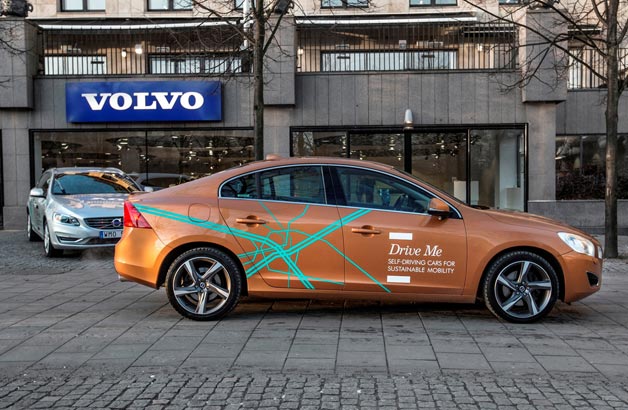Big Tech’s foray into the driverless car is achieving better and better results, according to Volvo. The Swedish car manufacturer announced that an array of sensors places on the perimeter of most cars could help eliminate crashes as the technology matures over the next 5 years.
SEE ALSO: XP Losing Market Share As Users Upgrade
The race to develop the technology is pushing forward the field at a much faster pace, as each manufacturer brings new technology to the table in the driverless car ‘arms race’. Volvo themselves are debuting dashboard camera tech which will monitor the driver’s gaze as they maneuver the vehicle.
The camera can react to sudden changes in the driver’s view, activating alarms to alert them they need to stay focused on the road. If anything goes wrong, the veering vehicle can be brought out of control and back into a lane automatically by the car’s sensors and electronic override systems.
Another system employs an entire suite of sensors as part of Volvo’s push for a complete robotic driver assistance system – a total of four radar sensors plus a 360 degree viewing camera detect absolutely any obstacle, including cars and other vehicles including cyclists as well as more obvious objects like trees.
This system, according to Volvo, uses intelligent systems to plan an ‘escape route’ in the event of catastrophic driver failure – in other words if you make a drastic mistake or another driver does, the car can attempt to outthink your feeble human brain and make the necessary adjustments to keep you safe.
“What we have now is a technology level which is basically enabling us to get to no crashes in the future and stopping fatalities and serious injuries,” said acting Volvo VP Anders Eugensson.
SEE ALSO: Heartbeat Unlocking Bracelet In the Works
Volvo’s plan is to create a fleet of 100 of these augmented vehicles and lease them to the public in 2017, in order to get some real life statistics and feedback on the systems. Drivers will be limited to 72kph and must stay on a certain portion of the ring road around the city of Gothenburg.
According to Volvo’s project leader Peter Harda, the 100 car trial fleet for 2017 will include even more radar sensors, as well as GPS mapping tech.
By 2020 we suspect that the self-driving, or partial self driving, car concept will be fully fledged and potentially a tech standard for vehicles. However, it’s not known if the kit will become standard for all automobiles after a certain point or just an optional toy to safeguard those who will be able to afford the system.
Source: The Sunday Times
Via: The Australian


